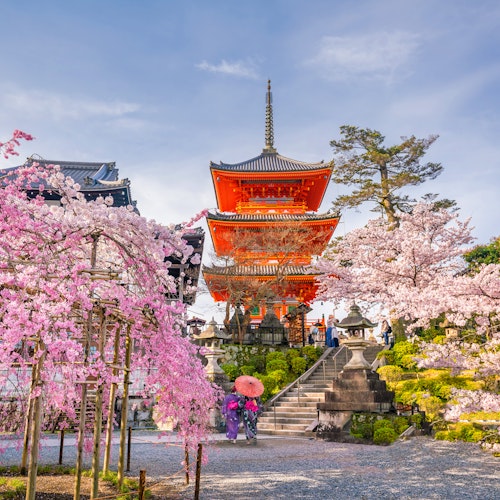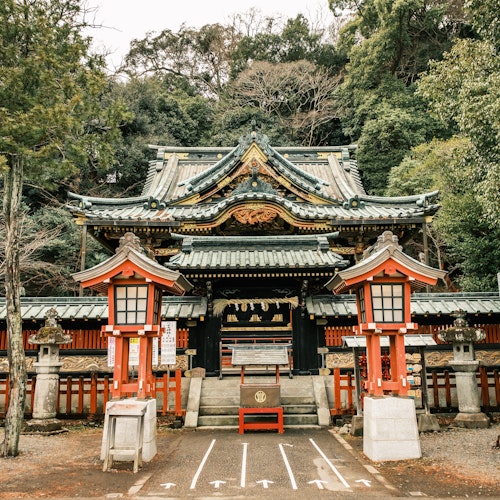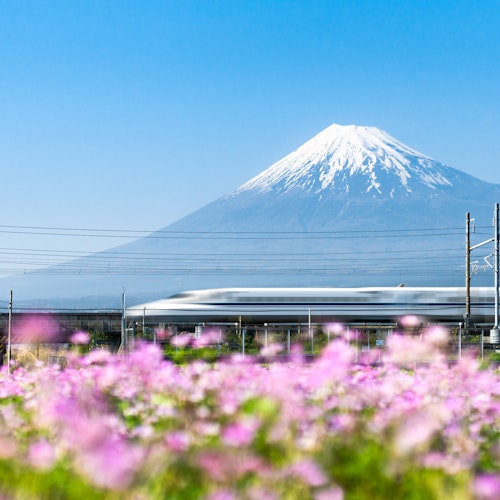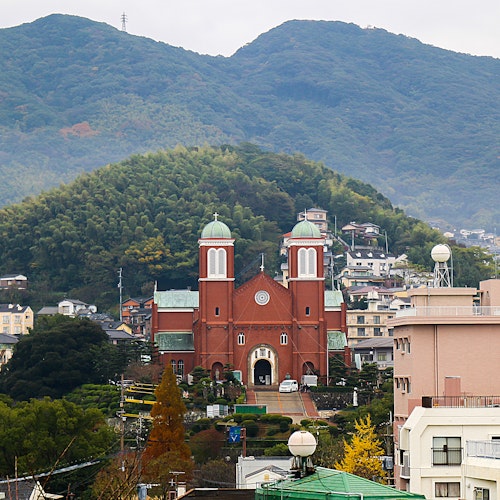The Ultimate Handbook for Vegan & Vegetarian Travelers in Japan

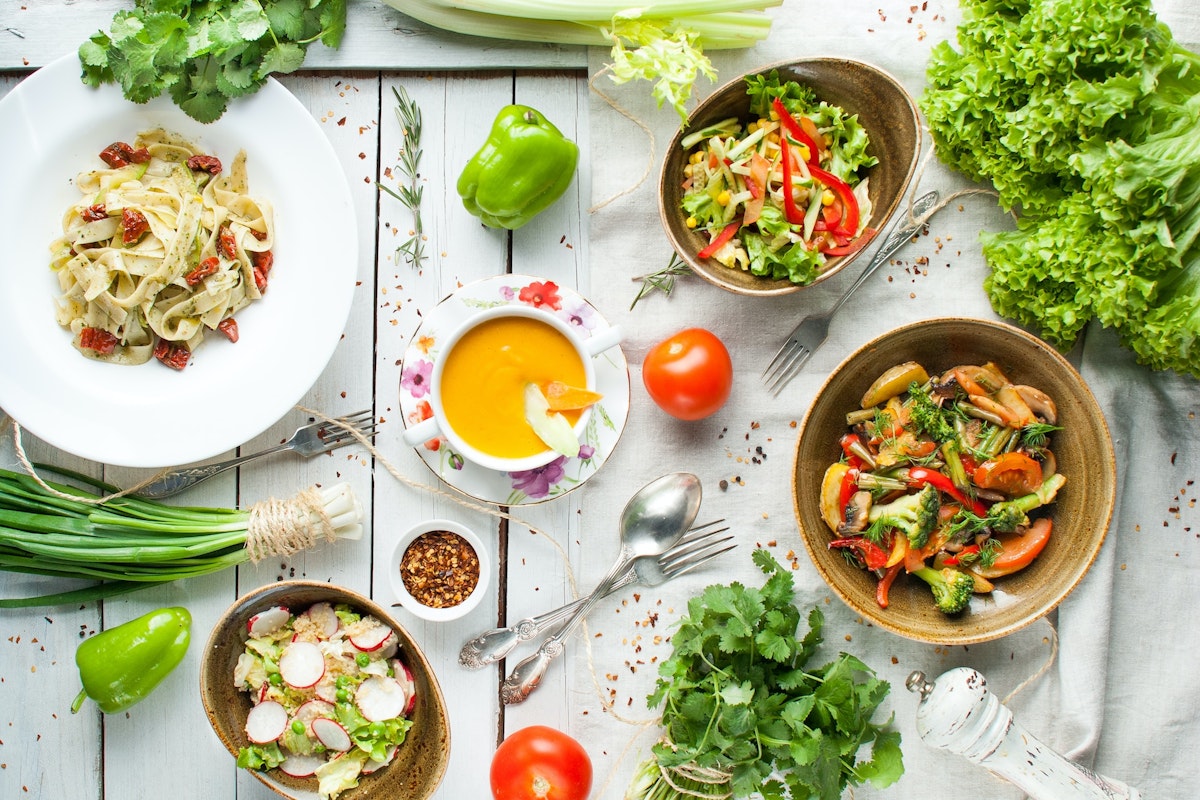
- Understanding Japanese Cuisine
- Essential Japanese Vegan & Vegetarian Vocabulary
- Vegan & Vegetarian-Friendly Destinations in Japan
- Navigating Traditional Japanese Restaurants
- Japanese Vegan & Vegetarian Delicacies
- Vegan & Vegetarian-Friendly Accommodation
- Useful Mobile Apps and Resources
- Etiquette and Cultural Considerations
- Conclusion
More people around the world are choosing plant-based diets for health, ethical, and environmental reasons. But finding vegan and vegetarian food in Japan can be tricky since many traditional dishes include seafood or meat.
If you're planning a trip to Japan and prefer plant-based meals, this guide will make things easier. Japanese food is famous for its unique flavors, but even dishes that seem meat-free might have hidden ingredients like fish broth. With some helpful tips, you can still enjoy delicious food without worrying about what's in it.
This blog will share must-know phrases, plant-based food recommendations, and the best spots to eat. From modern cafes in Tokyo to traditional temple meals in Kyoto, there are plenty of great options. Get ready for an amazing food experience while sticking to what works for you!
Understanding Japanese Cuisine
The essence of Japanese cuisine, also known as Washoku, lies in its respect for fresh, seasonal ingredients and meticulous preparation methods. It encompasses a wide range of dishes, from sushi and ramen to tempura and yakitori. While many of these dishes contain meat and fish, there's an intrinsic aspect of Japanese cuisine that aligns seamlessly with vegan and vegetarian diets: the Buddhist tradition of shōjin ryōri. Developed over centuries in Buddhist temples, shōjin ryōri is entirely plant-based, focusing on tofu, seitan, and a variety of seasonal vegetables. This highlights the fact that vegan and vegetarian diets are not alien to Japanese food culture, but a part of its historical tapestry.
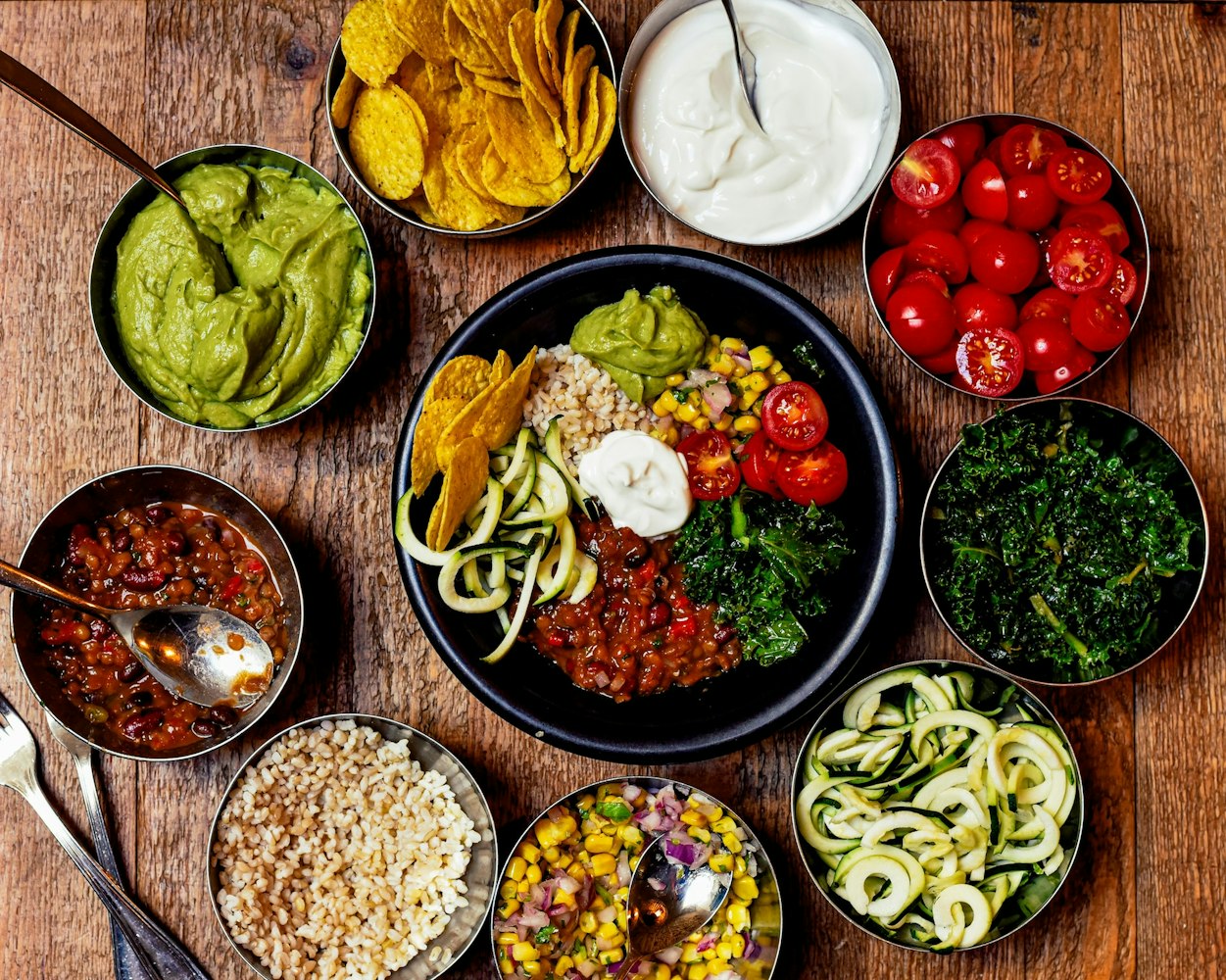
Image Credit: Ravi Avaala
Yet, a word of caution for vegan and vegetarian travelers: Japanese cuisine often incorporates seemingly invisible animal-derived ingredients. Dashi, a soup stock made from fish, is a ubiquitous part of Japanese cooking, finding its way into everything from miso soup to noodle dishes. Similarly, many dishes may seem plant-based on the surface but might contain traces of fish, meat, or animal-based broths. Hence, communication is crucial. Always specify your dietary restrictions ("Watashi wa bejitarian desu" for vegetarians, "Watashi wa vegan desu" for vegans), and don't hesitate to ask about the ingredients in your meal. As an increasing number of restaurants in Japan are accommodating dietary preferences, a little dialogue can go a long way in customizing your dish to suit your needs.
Essential Japanese Vegan & Vegetarian Vocabulary
In order to navigate Japan's culinary landscape as a vegan or vegetarian, it's crucial to arm yourself with some essential Japanese vocabulary. Understanding these words and phrases can be instrumental in communicating your dietary preferences effectively and ensuring that the food you consume aligns with your lifestyle. As English might not be widely spoken in certain areas of Japan, especially in local and traditional eateries, these Japanese terms can be a lifesaver.
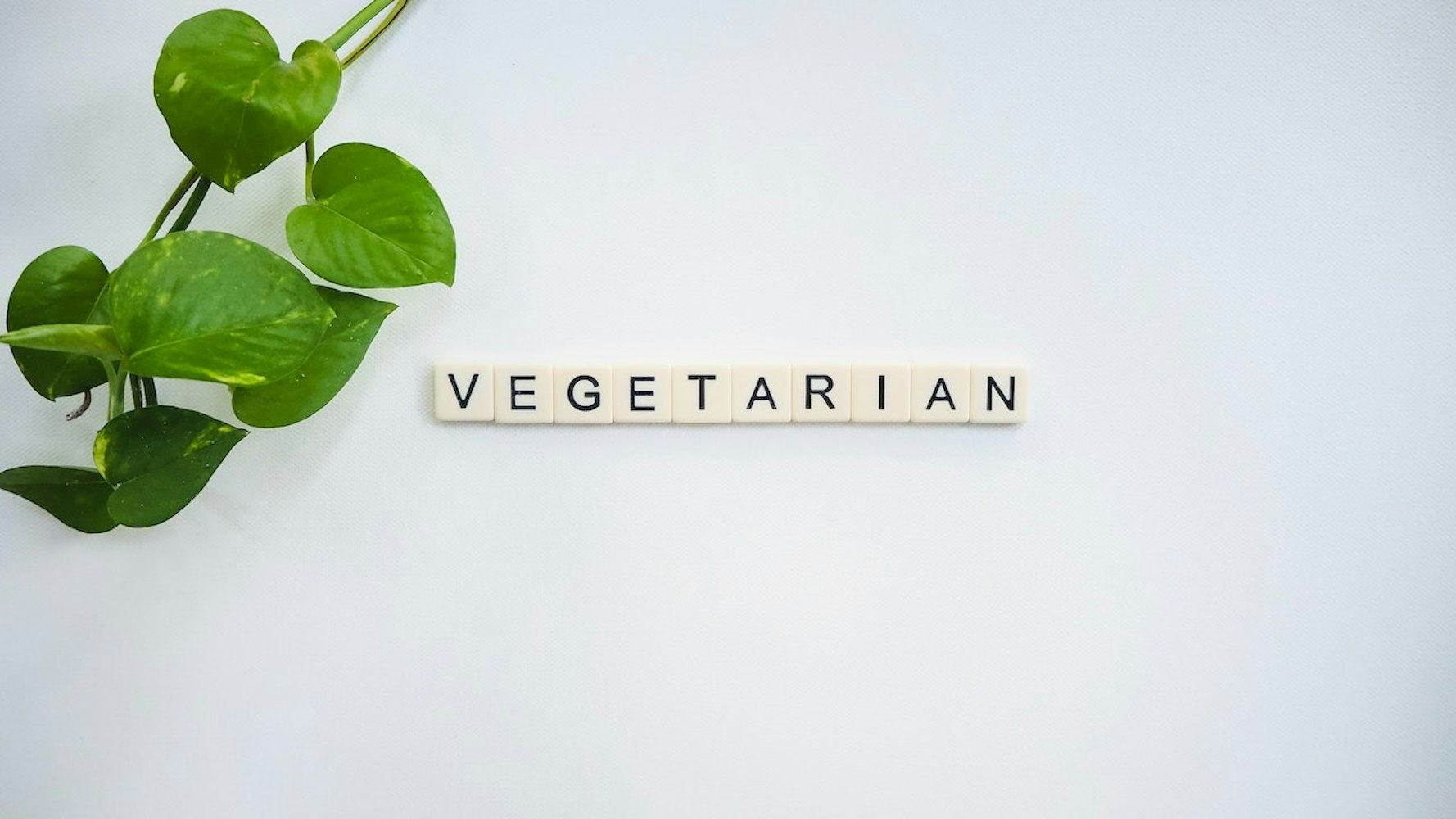
Image Credit: Vegan Liftz
Here are some phrases that vegans and vegetarians should familiarize themselves with:
Vegetarian: "Bejitarian" (ベジタリアン)
Vegan: "Bīgan" (ビーガン)
I am a vegetarian: "Watashi wa bejitarian desu" (私はベジタリアンです)
I am a vegan: "Watashi wa bīgan desu" (私はビーガンです)
Does this contain meat?: "Kore wa niku ga haitte imasu ka?" (これは肉が入っていますか?)
Does this contain fish?: "Kore wa sakana ga haitte imasu ka?" (これは魚が入っていますか?)
I don’t eat meat: "Watashi wa niku o tabemasen" (私は肉を食べません)
I don’t eat fish: "Watashi wa sakana o tabemasen" (私は魚を食べません)
Understanding these phrases will be a stepping stone to enjoying a variety of food in Japan while ensuring that your meals align with your dietary needs. Just showing a little language initiative can go a long way in making your vegetarian or vegan journey through Japan a much more comfortable and enjoyable experience.
Vegan & Vegetarian-Friendly Destinations in Japan
Navigating Japan as a vegan or vegetarian traveler becomes significantly easier when you know where to look. The urban landscapes of Tokyo, Kyoto, and Osaka, in particular, are brimming with options that cater to plant-based diets. These cities have carved a niche for themselves as the go-to destinations for vegans and vegetarians, thanks to an abundance of restaurants offering plant-based menu options and hosting vegan-centric events like the Tokyo Vegan Gourmet Festival.
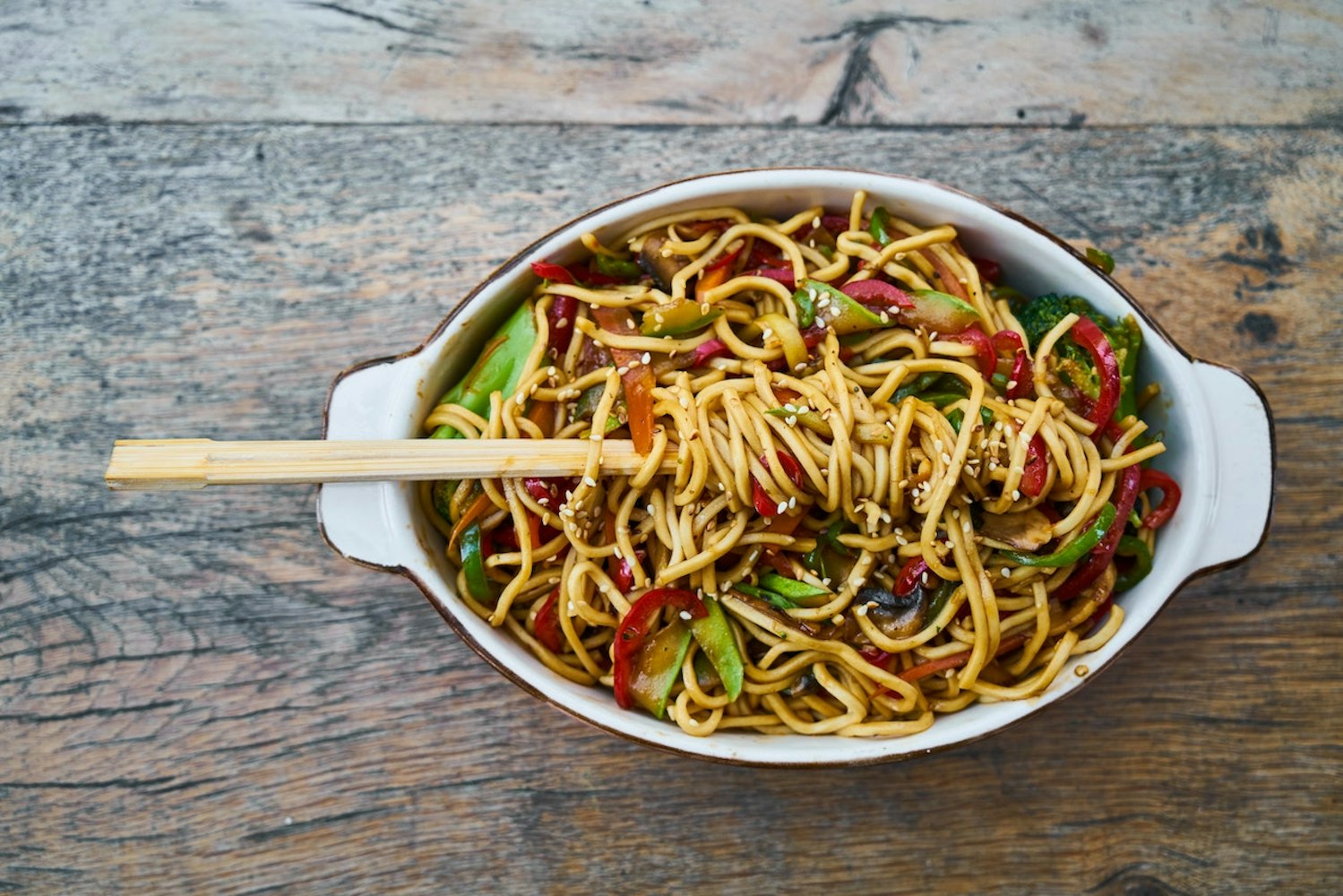
Image Credit: Engin Akyurt
Tokyo, the bustling capital city, has a thriving vegan and vegetarian food scene. From cozy cafes offering vegan pastries in Shimokitazawa to high-end establishments in Roppongi serving plant-based kaiseki (traditional multi-course meals), Tokyo is a vegan's paradise.
Meanwhile, Kyoto, famous for its Buddhist culinary history, offers an immersive experience of shōjin ryōri (temple cuisine), with an emphasis on tofu dishes.
And let's not forget Osaka, often termed the food capital of Japan, which offers a tantalizing array of vegan-friendly street food, including variants of popular dishes like okonomiyaki and takoyaki. These cities showcase the exciting fusion of traditional Japanese food culture with modern vegan and vegetarian dietary preferences.

Hop on a private food tour in Osaka.
Navigating Traditional Japanese Restaurants
Navigating traditional Japanese restaurants as a vegan or vegetarian requires a blend of communication skills and familiarity with the cuisine. Most menus in such eateries are in Japanese, with the staff having limited English proficiency. Hence, conveying your dietary restrictions in Japanese is vital. Phrases such as "Watashi wa niku to sakana o tabemasen" (I do not eat meat and fish) or using translation apps or cards can ensure your dietary needs are understood.
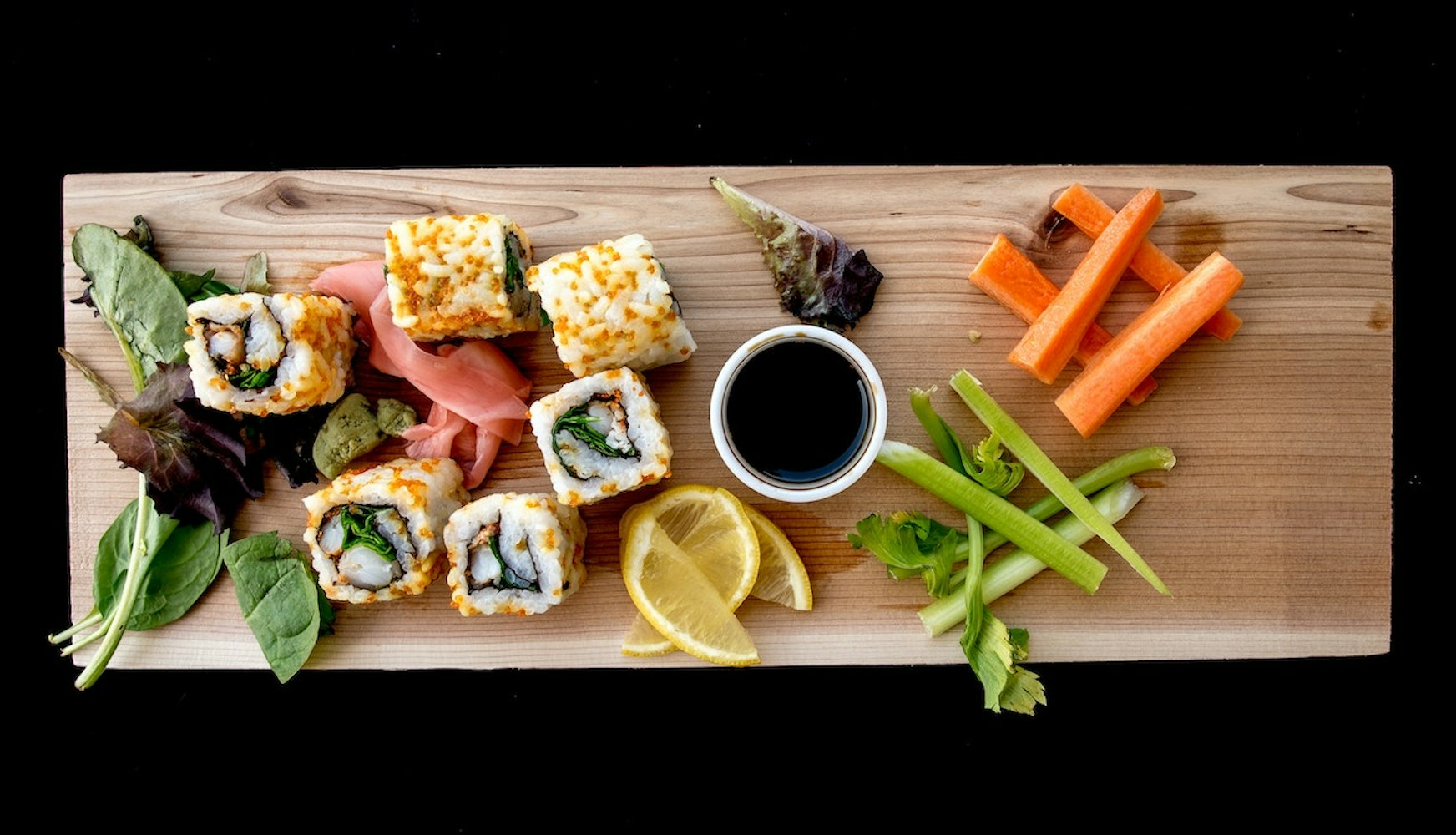
Image Credit: Frans van Heerden
Understanding which dishes can be customized to meet your dietary requirements is equally important. Many traditional Japanese dishes like sushi rolls and tempura can be easily adapted for vegans and vegetarians. Sushi rolls, for instance, can be made with vegetables instead of fish, while tempura can be made using a vegetable batter. Similarly, noodle dishes like ramen or soba can be prepared with a vegetable broth and loaded with vegan toppings like tofu or seaweed. By mastering these strategies and not shying away from requesting necessary adjustments, you can enjoy a rewarding and authentic dining experience in Japan while staying true to your vegan or vegetarian lifestyle.
Japanese Vegan & Vegetarian Delicacies
Japanese cuisine offers a rich tapestry of flavors that extends well beyond sushi and ramen, especially for vegans and vegetarians. These unique and traditional dishes not only satisfy your palate but also offer a peek into Japan's cultural culinary narrative.
Tofu: This versatile soy product is a staple in Japanese cuisine, coming in various forms from silken to firm. Kyoto is particularly known for tofu specialties, offering dishes such as yudofu (simmered tofu) and tofu kaiseki (a traditional multi-course meal focused on tofu).
Yuba: Also known as tofu skin, this soy-based delicacy is popular in Nikko. Enjoy it in various forms such as sashimi-style, stewed, or even as a dessert.
Natto: A dish for the more adventurous, natto (fermented soybeans) is a breakfast staple in Japan. It has a unique flavor and texture, often served with rice.

Image Credit: Nao Ya
Vegetable Tempura: A popular choice, this dish consists of vegetables coated in a light batter and deep-fried to perfection.
Soba Noodles: Made from buckwheat, soba noodles can be enjoyed cold with a dipping sauce or in a hot, savory broth, often without any animal products.
Vegan Sushi: Vegan sushi rolls can be equally delightful, with fillings such as pickled radish, cucumber, or avocado.
As you traverse different regions of Japan, you'll discover a wide array of regional plant-based specialties. From vegan okonomiyaki (savory pancake) in Hiroshima, the sansai (mountain vegetables) dishes of Nagano, to vegan ramen shops scattered across Tokyo, Japan offers a gastronomic adventure for vegan and vegetarian travelers. Exploring these local delicacies is indeed part of the travel experience!
Vegan & Vegetarian-Friendly Accommodation
Selecting accommodations that cater to vegan and vegetarian diets can significantly enhance your travel experience in Japan. Beyond just a place to rest, these accommodations offer an extension of the country's culinary culture, serving breakfasts and dinners that comply with plant-based diets. This is particularly relevant in Japan, where a considerable number of accommodations, such as ryokans (traditional Japanese inns), offer meals as part of the stay. Japan boasts several hotels and guesthouses that specifically cater to vegan and vegetarian guests.

Image Credit: Tokyofoodcast
For instance, the "VegeProject" label in Japan designates establishments offering vegan options, which include accommodations like hotels and guesthouses. In larger cities like Tokyo, Kyoto, and Osaka, numerous Airbnb options also offer vegan and vegetarian-friendly stays, often with kitchens equipped for preparing your own meals. In terms of special amenities or services, some ryokans and hotels offer vegetarian or vegan versions of the traditional kaiseki meal, a multi-course dinner showcasing a variety of dishes and cooking techniques. Additionally, many accommodations are associated with temples (known as shukubo), where guests can experience shojin ryori, a traditional Buddhist cuisine that is plant-based. By opting for vegan or vegetarian-friendly accommodations, you can ensure a smooth, enjoyable stay in Japan, where your dietary preferences are respected and catered to.

Discover vegan and vegetarian food options in Tokyo.
Useful Mobile Apps and Resources
In today's digital era, mobile apps and online resources significantly simplify the task of finding vegan and vegetarian-friendly options in Japan. They assist in translating dietary needs, finding suitable eateries, and deciphering ingredient lists, ensuring your dietary preferences are seamlessly incorporated into your travel experience. Helpful mobile apps include HappyCow, an international directory of vegan and vegetarian restaurants, and Vegan Navi, which focuses on vegan and vegetarian options in Japan. Apps like Google Translate and Veg Travel Buddy can assist with real-time translation of menus and common vegan/vegetarian phrases into Japanese.
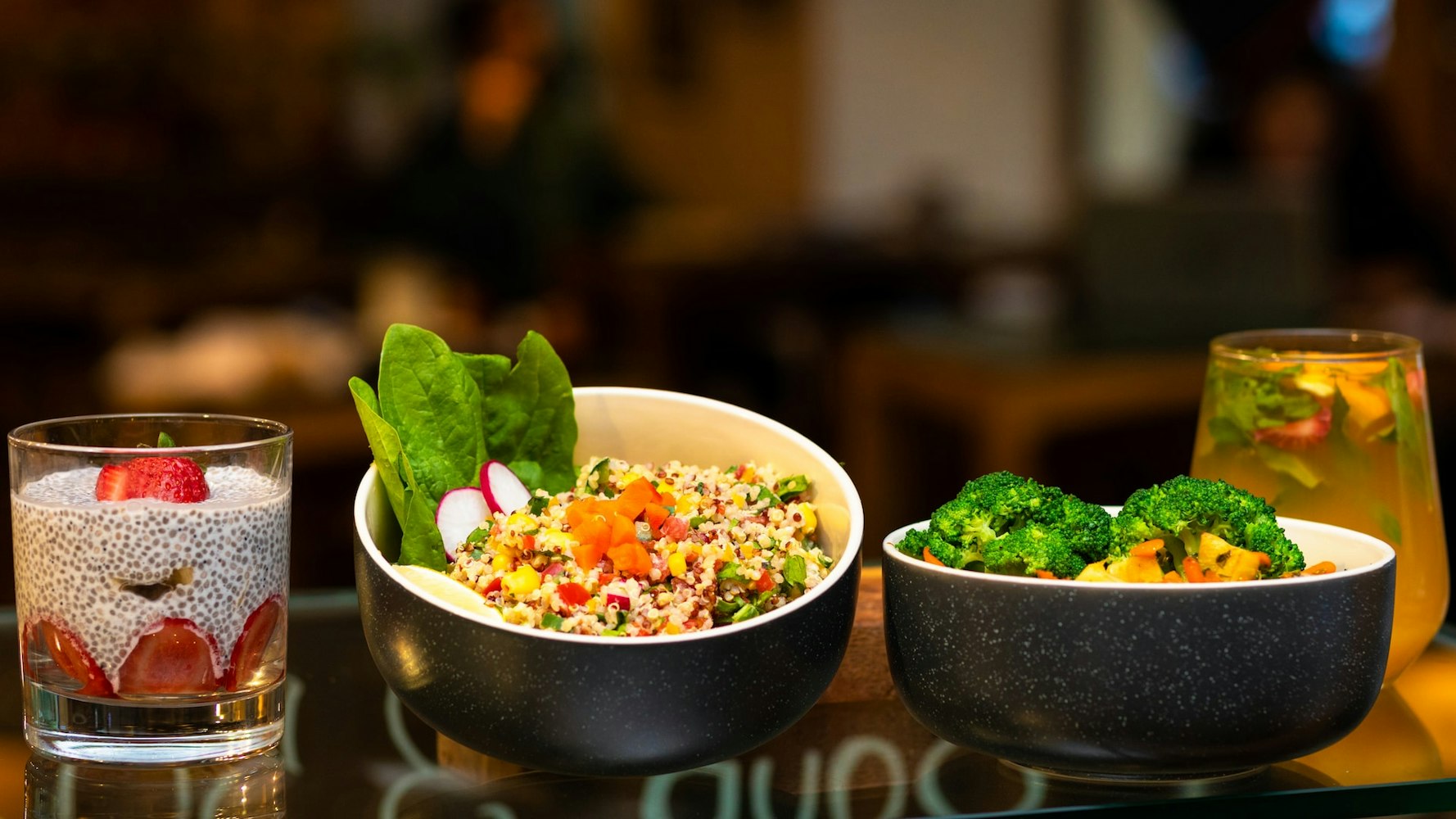
Image Credit: Farhad Ibrahimzade
Beyond apps, various online platforms provide additional support. Websites like Japan Vegan and VegeProject Japan offer a wealth of information about plant-based eating in Japan, while forums on platforms such as Reddit (check out r/VeganInJapan) provide real-time advice and shared experiences from fellow travelers. By leveraging these resources, vegan and vegetarian travelers can ensure a smooth and enjoyable culinary journey through Japan.
Etiquette and Cultural Considerations
When traveling in Japan, respecting local customs and traditions is paramount, and this includes navigating the food scene as a vegan or vegetarian traveler. Understanding and abiding by Japanese dining etiquette not only shows respect towards the culture, but it also contributes to a more enriching travel experience. When communicating your dietary preferences, politeness and clarity are key. Make use of the Japanese phrases you've learned, and don't hesitate to ask about ingredients or request substitutions.
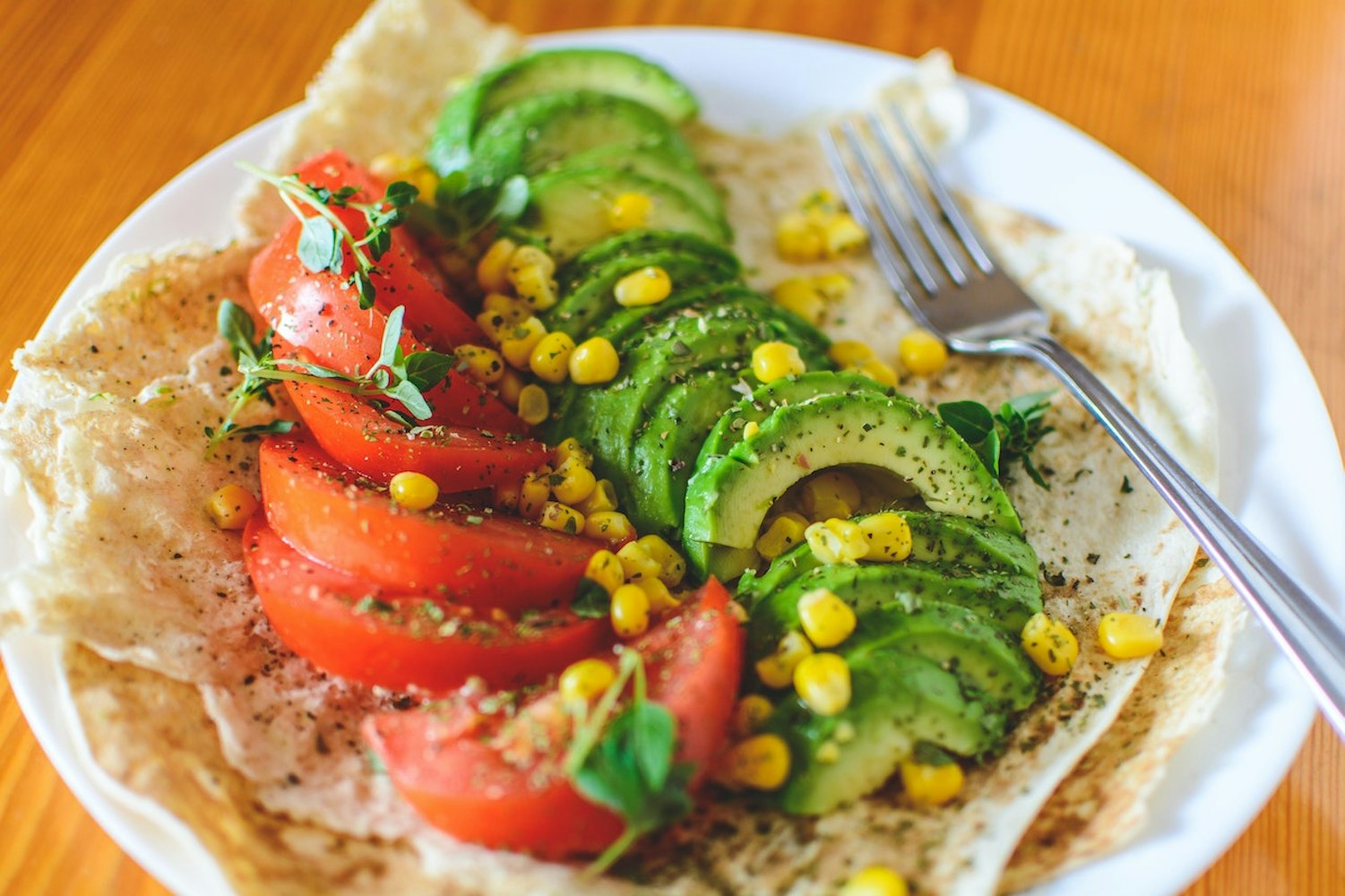
Image Credit: BULBFISH
Conclusion
Keep in mind that while most Japanese restaurants strive to accommodate guests, the concept of veganism or vegetarianism may not always be fully understood. Expressing gratitude and appreciation for their efforts can go a long way. At the end of your meal, saying "Gochisosama deshita," which roughly translates to "Thank you for the meal," is a customary way to show appreciation. It's also customary to return all dishes and utensils to their original positions and clean up after yourself at self-service establishments. With a sense of cultural understanding and respect, your dietary needs can align harmoniously with the Japanese food culture, making your journey a memorable one.
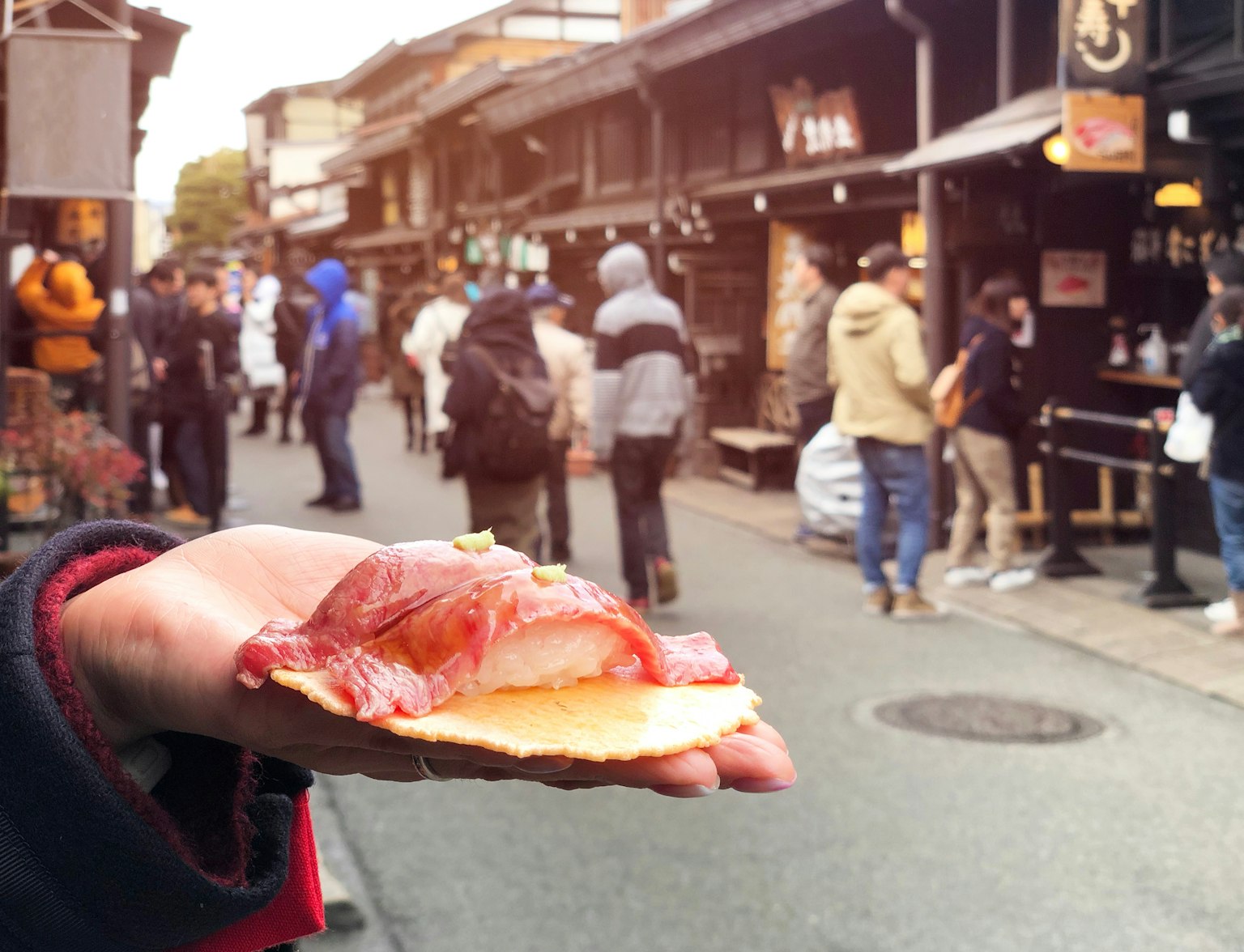
Join the "Bake Your Own Rice Crackers" activity in Takayama.
